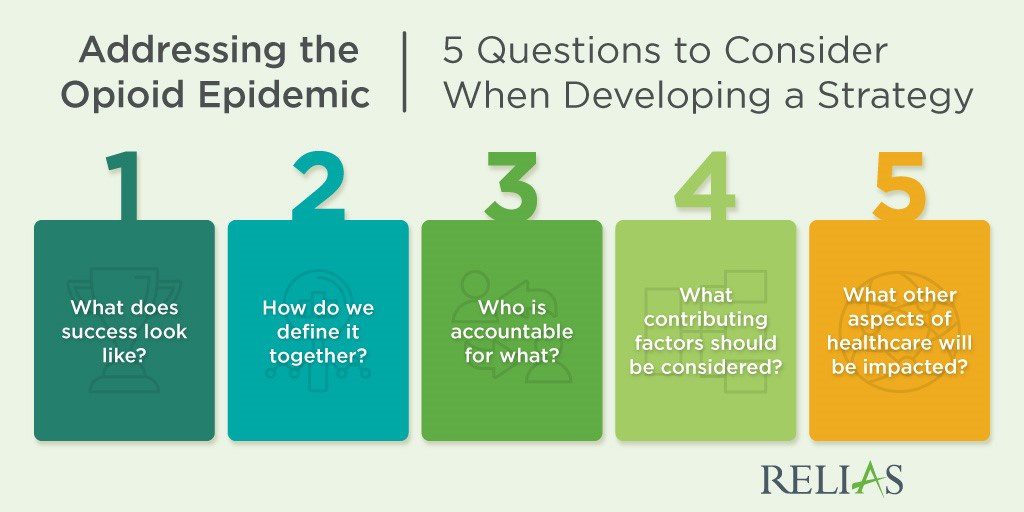For years, opioid misuse and abuse has been an emerging issue in healthcare. From the tragic impact on families and communities to the staggering cost growth, the opioid epidemic has gone from being an issue to the issue. Many states are currently taking an active role or determining their future role in combating the epidemic by requiring clinicians to dedicate a portion of their continuing education hours to opioid training or implementing statewide action plans.
Whether you are a state passing regulations, a health system, or an independent clinician, here are five questions to consider when developing a strategy to combat the opioid epidemic:

1. What does success look like?
What measures will states, payers and providers use to define and demonstrate success in combating the opioid epidemic? The definition must be spelled out. Different entities have different levels of data and different roles in prescribing and managing opioids and treating patients who are suffering from substance abuse issues stemming from opioids.
2. How can do we define it together?
Fortunately – and unfortunately – there are no shortage of measures in healthcare. Metrics and measures help tell a story about what has happened; however, if there isn’t consensus on which measures are being used (for example, 30-day refills versus 60-day refills), then we aren’t telling the same story. From payers to PCPs – having consensus around definitions of success is mission critical.
3. Who is accountable for what?
Payers, prescribers, physicians, nurses and patients all play a role in opioid abuse. Without a unified front, communication and integration around education and action plans, we will not make meaningful progress in reducing opioid abuse.
4. What are the other factors that should be considered to combat the opioid epidemic?
There are multiple reasons and root causes for the opioid epidemic that extend past routine healthcare services. Understanding the Social Determinants of Health for patient populations and how they intersect with the opioid crisis moves everyone closer to a long-term solution.
5. How will comprehensive opioid action and education impact other aspects of the healthcare system?
The more resources we dedicate to combating the opioid epidemic, the more resources we remove from other initiatives. There is arguably waste in healthcare that could be limited to then in turn open-up a bandwidth to dedicate to the opioid crisis, however there will be other aspects of the healthcare system that will get less attention. How can we anticipate where the diminished focus will be and what the implications will be of fusing resources elsewhere?
Learn more about how Relias can be a strategic partner in your solution to the crisis.






